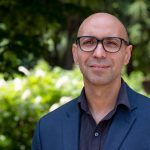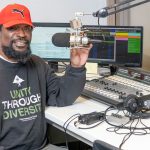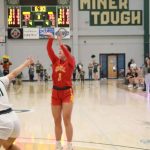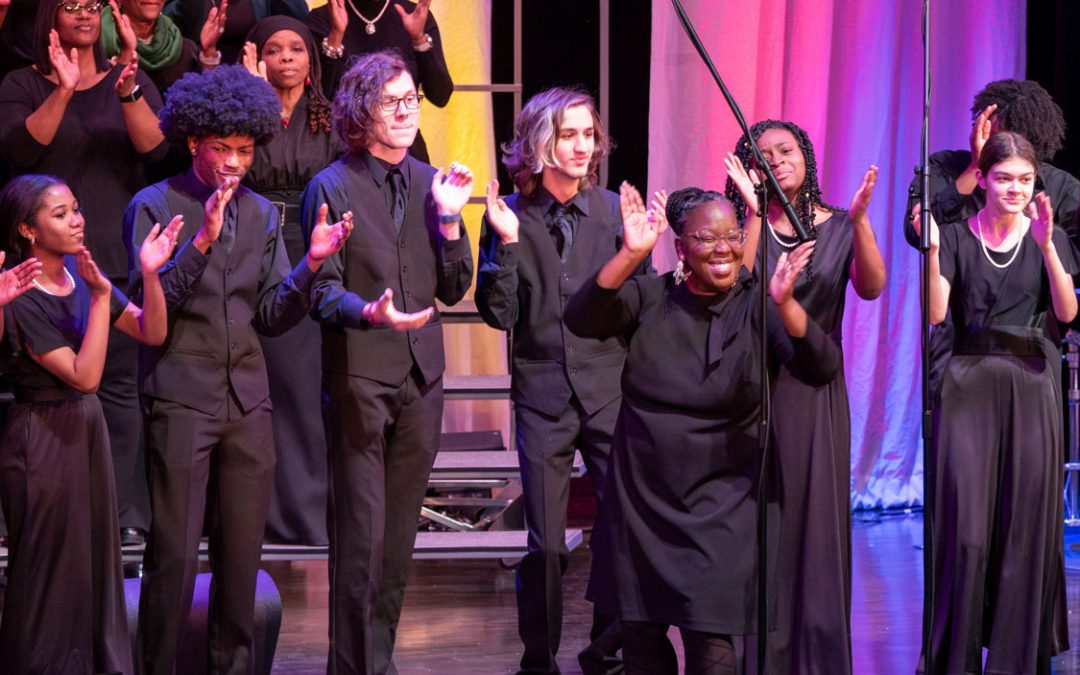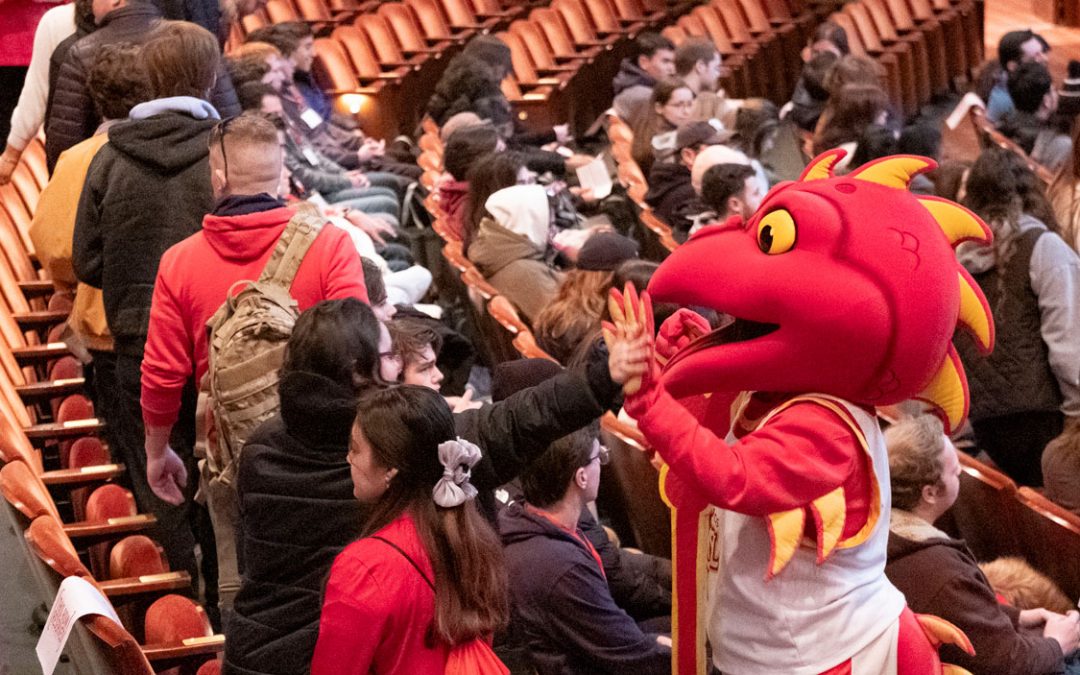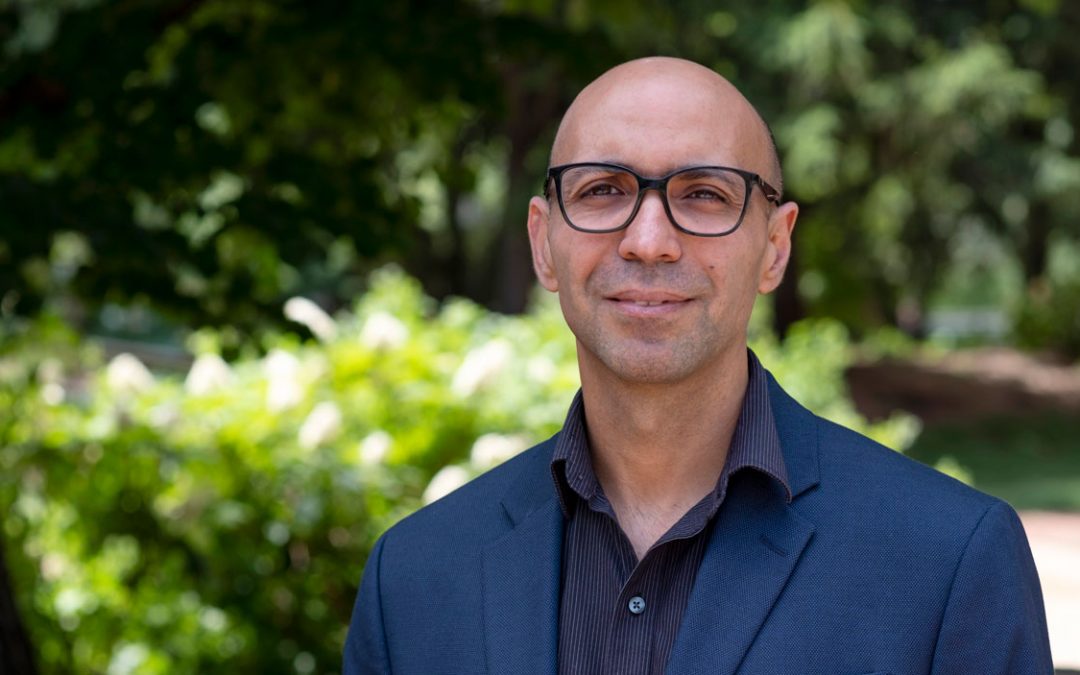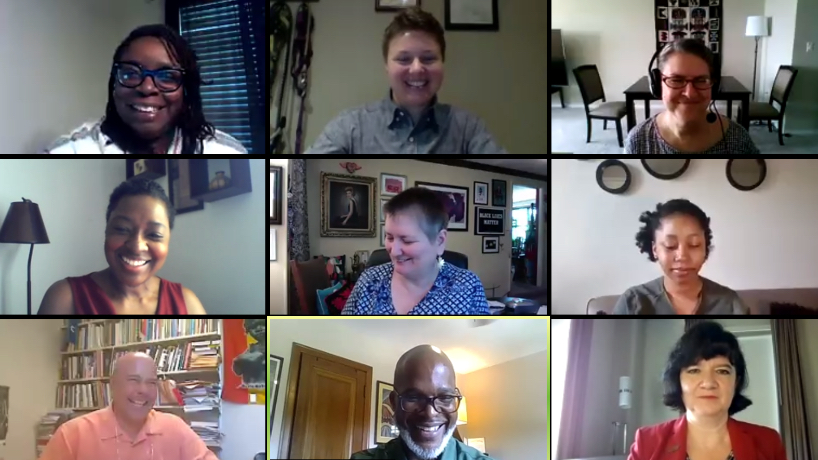
Tanisha Stevens (top, from left), Britne Bacca, Marlo Goldstein Hode, Natissia Small (middle, from left), Lynn Staley, Kalynn Clinton, Matthew Taylor (bottom, from left), Harlan Hodge and Marie Mora shared their insights while answering questions from audience members during the Virtual Gathering for Racial Unity. (Photo by Karen Holman)
Since the death of George Floyd in Minneapolis, cries for police reform and an end to systemic racism have grown as people protest across the United States.
Responding to the call for change, the University of Missouri–St. Louis Office of Diversity, Equity and Inclusion hosted a forum on Thursday that allowed students, faculty and staff to share their insights. Nearly 200 people attended the Virtual Gathering for Racial Unity via Zoom, where audience members posed questions to panelists.
Tanisha Stevens, director of the Office of Academic Integrity and interim director of ODEI, and Natissia Small, assistant provost for access and academic support, moderated the discussion.
Panelists included Britne Bacca, early alert coordinator for the Office of Student Enrichment and Achievement; Kalynn Clinton, May 2020 College of Business Administration graduate who currently works at Express Scripts; Marlo Goldstein Hode, senior manager of strategic diversity initiatives; Harlan Hodge, UMSL alumnus and senior manager of diversity and inclusion at Barnes-Jewish Hospital; Marie Mora, provost and executive vice chancellor for academic affairs; Lynn Staley, teaching professor of English; and Matthew Taylor, associate dean for faculty affairs in the College of Arts and Sciences.
“It’s very important to hear the voices of those that represent the campus, their individual perspective, the collective energy they bring,” Stevens said.
The panel acknowledged differing viewpoints throughout the audience and among the panelists themselves but promoted a sense of togetherness to work toward a common goal.
The first question addressed the word “unity.”
“What I look at in terms of the idea of unity is not ‘We’re all unified now. Everything is fine and we’re all going to get there together because we believe the exact same things,’” Staley said. “I think this has more to do with having to decide to unite together to fight racism in as many ways as we possibly can.”
Much of the discussion centered on UMSL’s role in promoting diversity on campus and throughout the St. Louis community.
With nationwide protests taking place while the coronavirus continues to spread in what panelists termed a “dual pandemic,” UMSL is poised to support efforts for change.
“The university has a renewed commitment in terms of inclusive excellence,” Mora said. “I think the dual pandemic has exposed a lot of inequities that have been pervasive in our society for many years. One of the things that I think is really important is that when we have events like this, it’s not just a one-time thing.”
UMSL researchers have been studying the criminal justice system for years. Taylor explained that law enforcement departments across the U.S. differ in terms of training and carrying weapons such as stun guns and pointed out the need for standardization.
The university piloted a program several years ago that allowed mental health workers to accompany police officers on calls. The program combined law enforcement skills with expertise related to mental health issues.
In addition, the UMSL Police Department is accredited by the Commission on Accreditation for Law Enforcement Agencies, which holds departments to a high standard of excellence. UMSL was the first university in Missouri to hold CALEA accreditation.
However, panelists agreed that efforts for change must extend beyond law enforcement.
“If we focus too much on just the police department, we let the entire criminal justice system off the hook,” Hodge said. “The police department is an extension of our criminal justice system. … We really should ask, ‘Does this system continue to serve us?’ If it doesn’t, we need to replace it with something else.”
Calls for reform have made panelists hopeful that true change will occur, and they discussed ways that can be reflected on campus.
“As teachers, one of the things that we can do is be very up front about where we stand on this – adding your department’s statement of solidarity with Black Lives Matter,” Staley said. “I have mine right in my syllabus.”
Clinton pointed out that a key component of combating systemic racism is listening to others.
“Don’t deny someone’s experience,” she said. “The fact of the matter is you can’t see me from a holistic perspective if you don’t see my color because that does impact my view of the world and how I navigate through life. Even though that’s not the totality of it, that is a huge part of it.”
The Gathering for Racial Unity marked the first in a series of university-sponsored seminars related to the topic. The ODEI is planning to host anti-racism discussion circles in the upcoming fall semester.
Although levels of awareness and involvement differ, panelists encouraged all attendees to support the movement in some way.
“What are we doing in helping continue to move forward?” Bacca asked. “It’s not something that we’re going to get right the first time around. Most likely that’s not going to happen. But I think continuing to have conversations should move us in a forward direction.”





